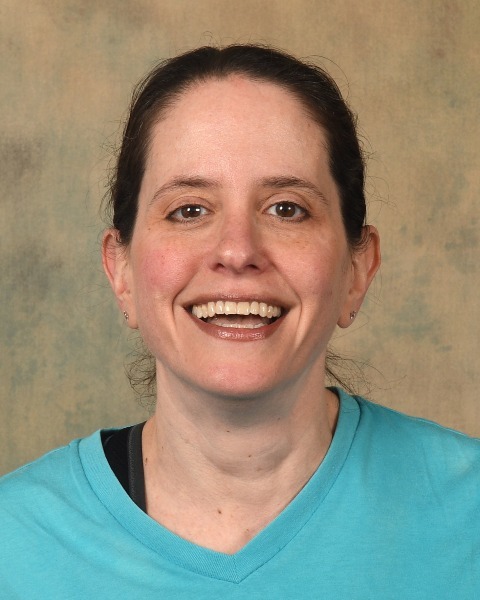
Clinical Characterization of Kratom: Is it a Craze or Here to Stay?
- Registration Closed

Clinical Characterization of Kratom: Is it a Craze or Here to Stay?
Recorded: Thursday, March 31, 2022 - Sunday, April 3, 2022
On-Demand Session
Overview
This 1-hour, on-demand session from the ASAM 53rd Annual Conference provides a thorough synthesis of the current state of knowledge about kratom, providing clinicians with information critical to clinical assessment and decision-making on kratom.
This focus session will provide a comprehensive, bench-to-bedside understanding of the psychoactive plant, kratom (Mitragyna speciosa), which is increasingly used in the United States to self-treat pain, psychiatric, and substance use disorder (SUD) symptoms. In this session, assessment, diagnosis, and intervention as they relate to SUD for kratom and kratom polydrug use will be discussed. Though limited, the most up-to-date animal and human research on kratom will be presented. Best practices for clinicians who are likely to encounter kratom-using patients will be provided along with suggestions for future research.
The target audience for this Intermediate level session includes physicians, nurse practitioners, physician assistants, other clinicians, researchers, residents, fellows, students, and counselors.
This session addresses the following ACGME Competencies: Patient Care and Procedural Skills, Medical Knowledge, Practice-based Learning and Improvement.
Learning Objectives
Upon completion, learners will be able to:
- Describe the historical and current uses of kratom, including recent epidemiological data on kratom use in the United States.
- Identify the clinically relevant pharmacodynamic effects and pharmacokinetic interactions of the kratom alkaloid mitragynine.
- List the clinical characteristics of kratom use, kratom intoxication, and kratom use disorder, along with possible therapies for each.
Registration Rates
| Rate Description | Rate |
| ASAM Member | $29 |
| Non-Member | $39 |
| Associate Member | $19 |
| Resident Member* | $19 |
| Student Member* | $19 |
*Residents, Fellows-in-training, Interns, and Students must join ASAM to receive a discounted registration rate. Click here to become an ASAM member. National and Chapter membership dues apply. There is no charge for Students to become a Member, but verification of student status is required.
Membership Question? Call ASAM at 1.301.656.3920, email us, or view the ASAM website for more information.
Refunds & Cancellations
All ASAM e-Learning Center refund requests must be made in writing to education@asam.org within 90 days of purchase. Those requesting refunds for courses that are in progress will receive partial refunds or e-Learning Center credit. Automatic full refunds will be made for any course with a live-course component that has been cancelled.
Registration Deadline: 05/01/2025
Course Instructions
- Click on the Contents tab to watch the on-demand recording.
- Click Complete Post Test to answer multiple choice questions. Participants will have 10 attempts to pass and must answer 2 out of 3 questions correctly.
- Click Complete Evaluation to provide valuable activity feedback. Scroll down on all questions as there may be answer options that expand past the size of the window.
- Click the button Claim Medical Credits in the box titled Claim Credits & Certificate. Choose the type of credit and click submit. Click the button View/Print Certificate to save or print your certificate. You can view/print your certificate at any time by visiting the ASAM eLearning Center, clicking Dashboard, and clicking Transcript/Achievements.
Need Assistance?
For assistance logging in, accessing activities, claiming credit, or for other questions or concerns, please check the FAQ page or e-mail Education@ASAM.org
ASAM is proud to offer Essential Accessibility to ensure our website is accessible and functional for all our learners while providing free assistive technology for people with the widest possible range of abilities.

Stephanie T. Weiss
MD, PhD
Stephanie T. Weiss, MD PhD is the staff Research Physician serving the Translational Addiction Medicine Branch (TAMB) of the NIDA Intramural Research Program. After earning a Ph.D. in pharmaceutical chemistry, Dr. Weiss received her medical degree from Cleveland Clinic Lerner College of Medicine. She is board certified in emergency medicine and medical toxicology, a subspecialty that cares for patients with poisonings, environmental exposures, and overdoses. She subsequently completed a second fellowship in addiction medicine research and was selected to participate in the Boston University Research in Addiction Medicine Scholars Program prior to joining NIDA. Dr. Weiss assumes responsibility for providing optimal, safe, and ethical care to study participants and clinical support toward the TAMB mission conducting inpatient and outpatient proof-of-concept human laboratory studies. Her research interests include novel psychoactive substances, medication misuse, and improving interpretation of urine drug testing.
No relevant financial disclosures.

Kirsten Smith
PhD, MSW
Dr. Kirsten Smith is currently a postdoctoral fellow at the National Institute on Drug Abuse Intramural Research Program in the Translational Addiction Medicine Branch and the Real-world Assessment, Prediction, and Treatment Unit. After receiving her Master’s degree in clinical social work from the University of Kentucky and working directly with people with substance use disorders, Dr. Smith pivoted to a scientific career to better understand problems she observed in the clinic. Dr. Smith began investigating kratom in 2017 and is now studying its use in real-world settings, using survey and social-media analyses. Dr. Smith is extending this to include ecological momentary assessment and kratom product assay, which can inform an interdisciplinary line of laboratory studies ranging from observational work to randomized behavioral-pharmacology experiments. Dr. Smith serves as the Lead Associate Investigator on a double-blind randomized placebo-controlled trial examining the withdrawal-suppression efficacy of a biased agonist in humans with opioid-use disorder. Concurrently, Dr. Smith is developing protocols for studying kratom, which she plans to continue as she transitions into a tenure-track university position.
CME, CE, CEU and Other Credit Types

ACCME Accreditation Statement
The American Society of Addiction Medicine is accredited by the Accreditation Council for Continuing Medical Education (ACCME) to provide continuing medical education for physicians.
AMA Credit Designation Statement
The American Society of Addiction Medicine designates this enduring material for a maximum of 1 AMA PRA Category 1 Credits™. Physicians should claim only the credit commensurate with the extent of their participation in the activity.
NAADAC, the Association for Addiction Professionals
This activity has been approved by the American Society of Addiction Medicine, as a NAADAC Approved Education Provider, for educational credits. NAADAC Provider #295, ASAM is responsible for all aspects of the programming.
California Association for Drug/Alcohol Educators (CAADE)
This educational program is approved by CAADE: #CP40 999 1222.
California Association of DUI Treatment Centers (CADTP)
This educational program is approved by CADTP: #205.
California Consortium of Addiction Programs and Professionals (CCAPP)
This educational program is approved by CCAPP: #OS-20-330-1222.
Continuing Education Credits (CEUs)
Non-physician participants will receive a certificate of attendance upon completion of the activity and an online evaluation confirming their participation. Participants should submit his/her certificate of attendance to their professional organization/institute.
Maintenance of Certification (MOC) or Continuing Certification Programs (CCP)
American Board of Medical Specialties (ABMS)
Through the American Board of Medical Specialties (“ABMS”) ongoing commitment to increase access to practice relevant Continuing Certification Activities through the ABMS Continuing Certification Directory, The ASAM 53rd Annual Conference has met the requirements as a MOC Part II CME Activity (apply toward general CME requirement) for the following ABMS Member Boards: Allergy and Immunology, Anesthesiology, Colon and Rectal Surgery, Family Medicine, Medical Genetics and Genomics, Nuclear Medicine, Physical Medicine and Rehabilitation, Plastic Surgery, Preventive Medicine, Psychiatry and Neurology, Radiology, Thoracic Surgery, Urology
American Board of Preventive Medicine (ABPM)
The American Board of Preventive Medicine (ABPM) has approved this activity for a maximum of 1 credit towards ABPM MOC Part II requirements.
American Board of Anesthesiology (ABA)
This activity contributes to the CME component of the American Board of Anesthesiology’s redesigned Maintenance of Certification in Anesthesiology TM (MOCA®) program, known as MOCA 2.0®.
American Board of Pediatrics (ABP)
Successful completion of this CME activity, which includes participation in the activity, with individual assessments of the participant and feedback to the participant, enables the participant to earn a maximum of 1 MOC point in the American Board of Pediatrics’ (ABP) Maintenance of Certification (MOC) program. It is the CME activity provider’s responsibility to submit participant completion information to ACCME for the purpose of granting ABP MOC credit.
American Board of Internal Medicine (ABIM)
Successful completion of this CME activity, which includes participation in the evaluation component, enables the participant to earn up to 1 Medical Knowledge MOC point in the American Board of Internal Medicine’s (ABIM) Maintenance of Certification (MOC) program. Participants will earn MOC points equivalent to the amount of CME credits claimed for the activity. It is the CME activity provider’s responsibility to submit participant completion information to ACCME for the purpose of granting ABIM MOC credits.
American Board of Surgery (ABS)
Successful completion of this CME activity, which includes participation in the evaluation component, enables the learner to earn credit toward the CME and/or Self-Assessment requirements of the American Board of Surgery’s Continuous Certification program. It is the CME activity provider's responsibility to submit learner completion information to ACCME for the purpose of granting ABS credit.
American Board of Psychiatry and Neurology (ABPN)
Successful completion of this CME activity can be used to satisfy the American Board of Psychiatry and Neurology’s (ABPN) CME requirement for Maintenance of Certification program.
American Board of Addiction Medicine (ABAM)
Successful completion of this activity can be used to satisfy the American Board of Addiction Medicine (ABAM) Tmoc credit requirements.
Royal College of Physicians and Surgeons of Canada (RCPSC)
Royal College Fellows can use participation in Accredited Continuing Medical Education to earn Section 3 Credits.
Disclosure Information
In accordance with disclosure policies of ASAM and the ACCME, the effort is made to ensure balance, independence, objectivity, and scientific rigor in all CME activities. These policies include mitigating all possible relevant financial relationships with ineligible companies for the Planning Committees and Presenters. All activity Planning Committee members and Faculty have disclosed relevant financial relationship information. The ASAM CME Committee has reviewed these disclosures and determined that the relationships are not inappropriate in the context of their respective presentations and are not inconsistent with the educational goals and integrity of the activity.

